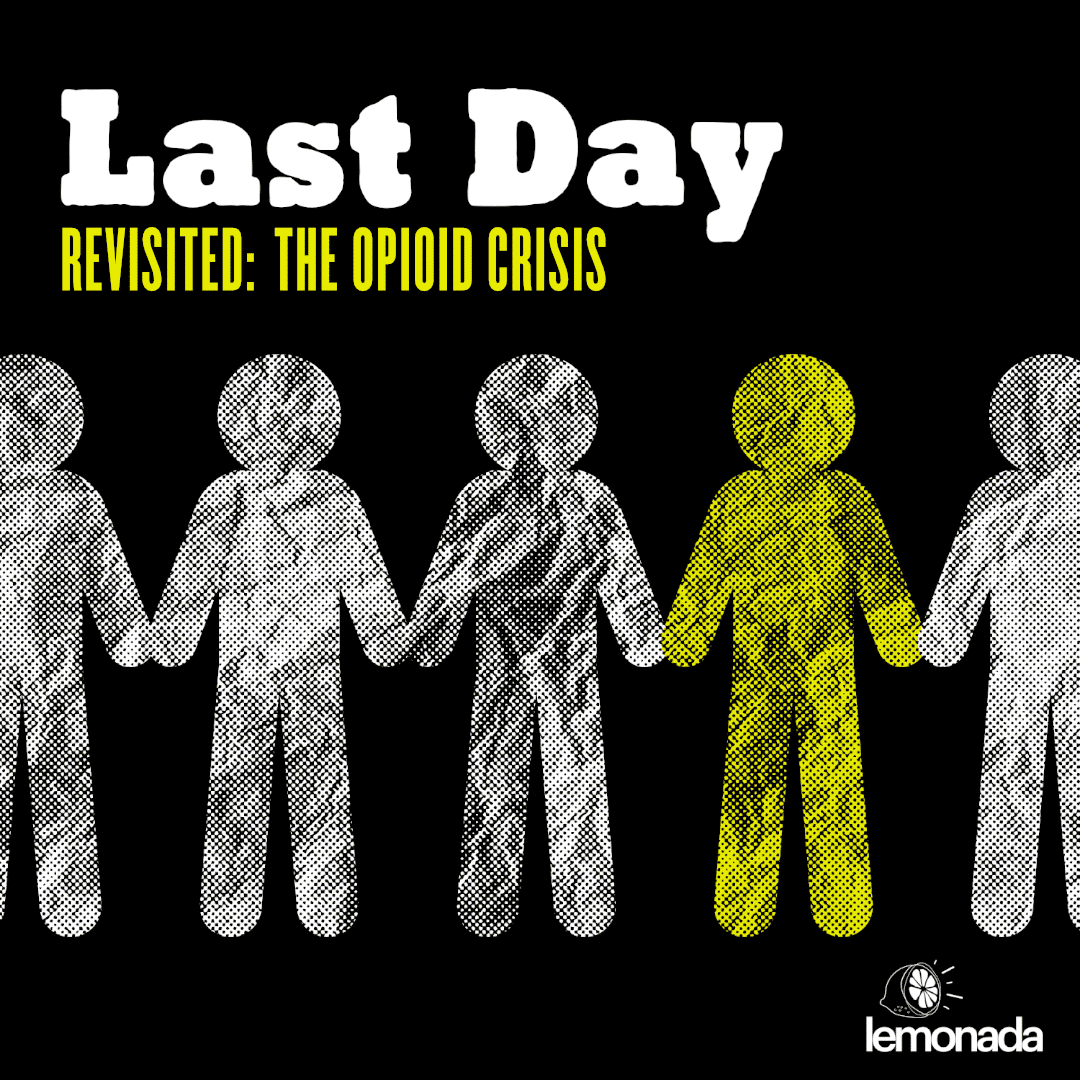
Last Day — Teaser
Subscribe to Lemonada Premium for Bonus Content
Transcript
Dr. Jay Pereira: [00:00:01] So you have somebody who goes from on the verge of dying, pale, slow pulse, very low oxygen level, completely unresponsive to very much awake and alive. And you kind of have this assumption that when somebody has an experience like that they would be really thankful for being alive. But, it doesn’t happen like that.
Stephanie Wittels Wachs: [00:00:32] This is Last Day, a new podcast from Lemonada Media, about the things that are killing us and I’m your host, Stephanie Wittels Wachs.
Karen Host: [00:00:41] Sometimes we’ll go for the same patient three or four or five times a day. It’s frustrating for our crews at times because they go and they grab them, they do everything they can for them, they wake them back up again get them hospital and then they walk back out.
Stephanie Wittels Wachs: [00:00:56] We’re trying to understand the why and the how of America’s most massive epidemics by zooming in on one person’s story, more specifically, their last day.
Paige: [00:01:08] His body was pushed up against the door so I couldn’t get in fully. I had to push really really hard. And then I got in and I saw him so you just called 9 1 1.
Jessica Cordova Kramer: [00:01:25] Could you tell he was dead?
Paige: Yeah. But like I was still hoping that maybe he wasn’t.
Stephanie Wittels Wachs: [00:01:32] Then we rewind the tape. We look at all the circumstances that brought them to their last day so we can figure out how they got there and how we, as a society, have gotten here. Our first season, we’ll be talking about opioids because, unfortunately, it’s the epidemic I know best. My brother, Harris Wittels, comedian beloved human died of a heroin overdose in 2015. So naturally, we are talking to comedians Aziz Ansari and Sarah Silverman, both noted experts on opioids. No that is a lie. They were friends of my brothers. They are not experts in this field at all.
Aziz Ansari: [00:02:17] Well I think I had an incredibly naive view of what his addiction was like. I thought, oh well he’s going to rehab he’s getting help like that means he’s fine. He’s checked in. Everything’s fine. Anytime you acted like it was serious at all around Harris he acted like you were insane. He’s like, ‘what are you talking? Yeah, I’m fine.’
Stephanie Wittels Wachs: [00:02:38] We also talked to policymakers like President Obama’s drug czar Michael Botticelli:
Michael Botticelli: [00:02:45] You know I had a really great dentist that I loved. I did the patient history where I disclosed the fact that I had a history of substance use, that I was in recovery he and I talked about it. And then after dental procedure said, ‘Would you like a prescription for Percocet.’ And I’m like you got to be freaking kidding me.
Stephanie Wittels Wachs: [00:03:02] And Boston’s Mayor Marty Walsh:
Mayor Walsh: I have no sympathy at all for a company like Purdue Pharma. They use that drug to kill tens of thousands of people.
Stephanie Wittels Wachs: And family members who have lost loved ones to opioid overdoses:
Doreen Cordova: [00:03:16] ‘Someday you’re not going to think of me as an addict, someday you’re just going to think of me as your son.’ And I told him that I only think of him as my son, never an addict.
Stephanie Wittels Wachs: [00:03:27] We imagine death to be somewhere in the very distant future when we are old and wrinkled and gray and surrounded by loved ones reflecting with pride and joy on a life well lived. [00:03:43] That’s not what this show is about. This is a show about what’s not supposed to happen. It’s about endings that are sudden and unexpected.
If you are a human being, which I have to assume that you are, then Last Day, coming this fall, is a podcast for you. Subscribe today on Apple or wherever you get your podcasts.